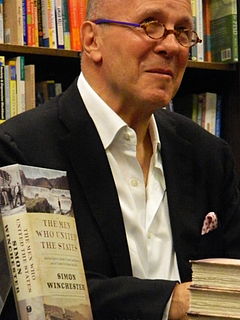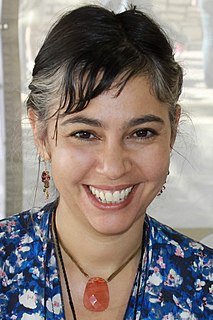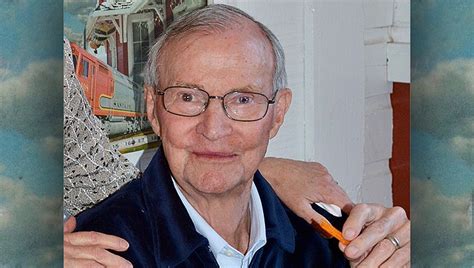A Quote by Simon Winchester
The most difficult task for anyone wandering through a foreign land with the hope of gaining some insight into it is the profound need to come to terms with the lives and thoughts of strangers.
Related Quotes
I'm very curious about people, and one of the most difficult truths for me to accept as a person is that I'll never be anyone else, and I will never fully understand anyone's perspective other than my own. Because I've come to some understanding of that, I feel it's this very difficult but worthwhile challenge to get as close as I possible can to that. If the only way that we can do that is through language, then that's how it has to be done.
I want to yell about it most days and stop strangers in the street to share my outrage. But my mind is too serpentine to offer instant poem reactions. I can however stand back and examine the deeper ground, or at least that's what I hope my poems are doing. I believe contemplation can be an ethical act and literature can be a profound agent of cultural change, so I hope in some way my poems expand the conversations about environmental decline and social responsibility.
In some mysterious way, once one has gained an insight into human nature, that insight grows from day to day, and he to whom it has given to experience vicariously even one single form of earthly suffering acquires, by reason of this tragic lesson, an understanding of all its forms, even those most foreign to him, and apparently abnormal.
It is a myth that alcoholics have some spontaneous insight and then seek treatment. Victims of this disease do not submit to treatment out of spontaneous insight - typically, in our experience they come to their recognition scenes through a buildup of crises that crash through their almost impenetrable defense systems. They are forced to seek help; and when they don't, they perish miserably.
I think the hardest one had to do with suffering. It had to do with all of our church members and friends passing through difficult times. Sometimes it's the global climate: tsunamis, earthquakes, radiation. I think these kinds of questions are absolutely the most difficult, yet we need to be ready to respond to them because we have to be able as pastors to walk people through these valleys, these tough times in their lives.
Freedom is as frightening now as it was thousands of years ago. It will always require a willingness to sacrifice what is most familiar for what is most true. To be free we may need to act from integrity, on trust, sometimes for a very long time. Few of us will reach our promised land in a day. But perhaps the most important part of the story is that God does not delegate this task. Whenever anyone moves toward freedom, God Himself is there.
The most serious point in the case is the disposition of the child." What on earth has that to do with it?" I ejaculated. My dear Watson, you as a medical man are continually gaining insight as to the tendencies of a child by the study of the parents. Don't you see that the converse is equally valid. I have frequently gained my first real insight into the character of parents by studying their children.
I think the hardest questions had to do with suffering. It had to do with all of our church members and friends passing through difficult times. Sometimes it's the global climate: tsunamis, earthquakes, radiation. I think these kinds of questions are absolutely the most difficult, yet we need to be ready to respond to them because we have to be able as pastors to walk people through these valleys, these tough times in their lives.
One of the most difficult things to say to another person is, 'I hope that you will love me for no good reason.' But it is what we all want and rarely dare to say to one another, to our children, to our parents and mates, to our friends, and to strangers, especially to strangers who have neither good, nor bad reasons to love us.


































